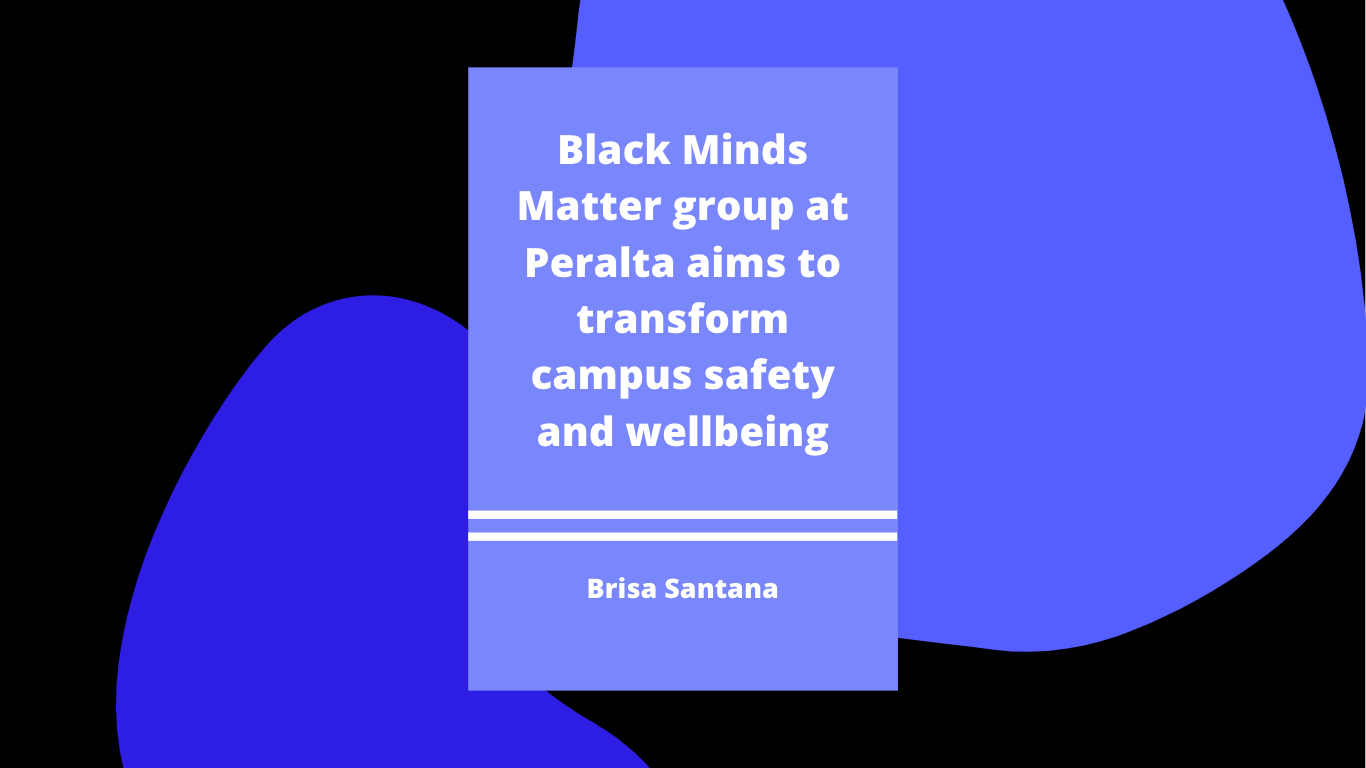
This December, in just a few short weeks, Peralta’s security contract with the Alameda County Sheriff’s Office (ACSO) will be officially terminated. This motion, passed unanimously by the board of trustees in June, was advocated for by an organization of transformative justice activists called Black Minds Matter at Peralta, who rallied together to create progressive change within their community.
Following an urgent cry for awareness, demand for change, and a conscious effort to stand in solidarity with the Black Lives Matter movement after the murder of George Floyd, it became widely apparent that many institutions would be moved to participate in a nationwide movement to defund police sanctions. Through the collaboration of Black Minds Matter, an initiative began under the successful call to action to remove armed forces from the Peralta school environment.
Questioning ACSO is nothing new to Peralta— The Laney Tower (now The Citizen), reported on student concerns about ACSO as far back as 2014. However, this time, galvanized by global clamor, Peralta’s own Black Minds Matter group members started a petition which grew to collect the signatures of nearly two thousand people who endorse the motion for the district to cut ties with local armed law enforcement and to invest their 4.1 million dollar budget back into its community.
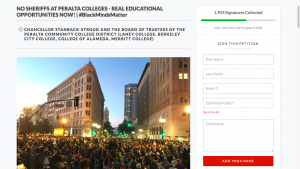
Kimberly King— Laney College psychology professor, and faculty co-coordinator of the Umoja-Ubaka Project— convened the Black Minds Matter group, which includes faculty, classified professionals, local organizers and students from across all four campuses. The team quickly gathered every form of support that they could and started meeting in response to this social outcry. From there, their mission to make Peralta a more socially conscious and pro-restorative justice learning environment became a hot-topic discussion led by allies and organizers from every corner of the Bay Area community.
“We just thought this was a great opportunity to build on the momentum of the movement and actually have a real effect on the student’s lives, both in terms of reducing police presence and the trauma related to that,” King told The Citizen recently.
“But also to replace their security teams with a much less expensive, community-based security, and use the rest of the money directly to help students in providing them something tangible that will actively decrease inequality.”
With concerted approval from the Peralta Board of Trustees, and an overwhelming amount of support on their petition, Peralta’s Black Minds Matter pioneered the way toward their next phase of action in hopes of finding what they feel would be a more holistic and alternative solution.
From this momentum, a vision was born — the Action Plan for Holistic Safety and Wellness for the Peralta Community Colleges and District. Although this action plan isn’t a formal part of the district’s security plan, the group hopes district leaders will take their recommendations seriously.
After having recurring Zoom meetings at noon every Friday since May, this group of students, staff, faculty and community leaders came together to brainstorm what a pathway toward achieving reform could include. With conversations continuing to happen surrounding the accredited replacement of this security force, they recognized that many are still wondering: what exactly does a police-free campus look like?
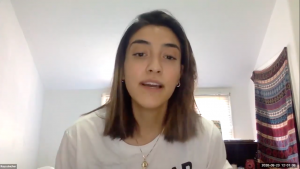
In an effort to raise reassurance to the community that their plan would ensure protection, King, Associated Students of Laney College (ASLC) President Alycia Raya, and Laney Student Senator Amin Robinson created an event called Reimagine Public Safety, which took place virtually in September. King said that although she wanted people to know that the group took safety seriously, the organizers did not feel that there needed to be armed law enforcement walking around Peralta campuses to achieve this effect.
Ultimately, the purpose of this event was to inform the public of their plan and why it was created, but also to shed some light on the new agencies that are projected to provide Peralta campuses with safety and security.
In total, the district is slated to sign contracts with four vendors:
- Community Ready Corp (CRC), who will be providing security for Laney College,
- Zulu Community Protection, who will be placed at Merritt and College of Alameda,
- Marina Security Services, who will be the Dispatch and District Administrative Center, and the already familiar
- A-1 Protective Services, who have been providing security services to BCC but will also be helping cover other shifts around the district.
The goal behind Black Minds Matter at Peralta’s Holistic Action Plan, King states, is to “provide a security method that uses a restorative justice model, communication, de-escalation, mediation, but not guns.”
There is hope that now, with contract termination, funds that previously went toward ACSO can be funneled into programs that will aim to prop up students’ success in school. The action plan recommendations include:
- More campus-based mental health counselors for group and individual therapy
- Utilize counselors as public safety supporters
- Expand training and diversification of student-community safety aids
- Restorative justice training, policies, and staff
- Mental-health-first-aid training for faculty, staff, and students
- Student services care teams/behavioral intervention teams
- Support students’ basic needs
- Case managers or social workers to support needy students
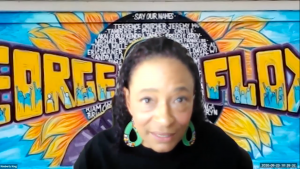
This brief overview of the safety-points directly caters to the roles and realities that mental health have in creating a safe space for students to truly thrive in, King said. She feels that the historical lack of funding, and by extension, lack of awareness around these much-needed essential resources play a large part in how institutions and systems work with students who carry a history of trauma.
While the major emphasis of the plan is on restorative justice, mental health, community crisis response and intervention, and providing for people’s basic needs, there is also an underlying message to the Black Minds Matters group’s plan, which is that punishment should not be the ultimate goal or focus of any service provided on campus.
“Punishment doesn’t really help people who are the victims of crime,” Laney College English department chair and member of Black Minds Matter Chris Weidenbach stated.
“There’s probably an understandable reason that people reach for a desperate situation, or fall into a desperate action and state of mind, and do something harmful. If we can see a person for their entire story, rather than treating them at face-value, then that’s moving in the right direction.”
Along with the need for more support for basic needs, and a move away from traumatic punitive models, King also pointed out that there is a disparity between the ratio of employed counselors to the amount of students per campus.
She explained that Black Minds Matter did a lot of research in preparing their Action Plan proposal, and found there is one-third of the number of mental health counselors that are necessary given the number of students that Peralta carries.
“I have had students who told me about their experiences of having to get on a waitlist to get into therapy, and that they can only access sessions once a month or every two weeks, and that’s not really going to be the best type of therapy if you’ve been through a lot of trauma,” King said.
It was also reported by the ACLU in 2016 that many schools are absent of counselors altogether, while still maintaining a police presence on campus, with California leading third in the country for highest counseling caseloads by a ratio of 682-to-1.
Peralta, a district that holds nearly 30,000 students, has a count of 57 counselors, with just a few specialized in non-general counseling (such as mental health, EOPS, veteran services, DSPS, transfer or athletics), and districtwide, there is only one full time mental health counselor at Peralta, who works at Berkeley City College.
On the student side of action, associated Students of Laney College President Alycia Raya, who is also a founding member of Black Minds Matter, is excited about the work that has been done and the recommendations the group continues to propose to district leadership. Raya told The Citizen that the highlights so far have included working closely with organizations similar to Restorative Justice for Oakland Youth (RJOY), in hopes to help foster community understanding for one another in times of conflict.
Raya’s hope for charting this path is to potentially pay for a cohort of students to go through RJOY’s training to implement their skills in conflict resolution. She believes that Peralta must embed this culture into its curriculums in order to ensure these pathways last for generations to come.
“We are not spoonfed revolutionary ideas of transformation or restorative justice. We are instead conditioned to believe, especially as a non-black person, the oppressive systems that America has built and perpetuated are correct,” she stated.
Raya continued, “I could never hate someone who doesn’t understand this, but I hold a lot of fear for the people who don’t choose to learn; who don’t choose to let go of certain things in order to be okay with the discomfort of having these conversations, and moving forward with reform.”
King believes we have come to a time where holding discussions surrounding things like unconscious bias and anti-blackness isn’t enough to enact real change. “I felt like the things that the kids in the streets were talking about were that we need to defund the police, and we need to actually get real resources to the people who need them. Not just talk about racism,” King said.
The Action Plan for Holistic Safety and Wellness has now been endorsed by the Academic Senate at Laney College, Merritt College and College of Alameda as well as the District Academic Senate. The only campus senate that hasn’t endorsed the plan is Berkeley City College, who will revisit it in the spring.
Yet, despite much support, many members of the Black Minds Matter group have voiced their frustration over the inability to get their proposal of the Holistic Action Plan through to higher governance in Peralta, and ultimately have been unsuccessful at getting an official hearing for the plan, as expressed by Alejandro Acosta, Peralta Classified Senate Vice President, at Laney’s Dec. 8 Health, Safety and Security committee meeting.
The mission is to implement as much of the holistic model as possible to what changes are currently being made in the security planning process in order to establish progressive reform, as well as follow through with their initial outcry. Every member of the Black Minds Matter initiative has volunteered their time into being a part of this motion, as stated by Alejandro Acosta.
During his interview with The Citizen, Weidenbach expressed sentiments of compassion surrounding this current paradigm shift. He stated that he understands the anxieties around the unknown, but is also adamant that communal safety is a shared responsibility, not just something to hand over.
“We could be a much stronger community if we were all watching out for each other and not hastily trying to solve every problem by calling the police. There are so many other ways to react,” Weidenbach said.
Raya added that she believes that Peralta is presented with a truly wonderful opportunity right now, and that embracing its members’ collective skills, backgrounds, and differing perspectives is what will strengthen the community.
As Peralta continues to move forward with a new security model, members of Black Minds Matter hope to keep the conversation going. They aspire to garner more support through the local public as a means of yielding even greater results beyond police presence on campus, and centralize priorities toward ensuring that every single student has access to resources, and to spaces that make all feel safe.

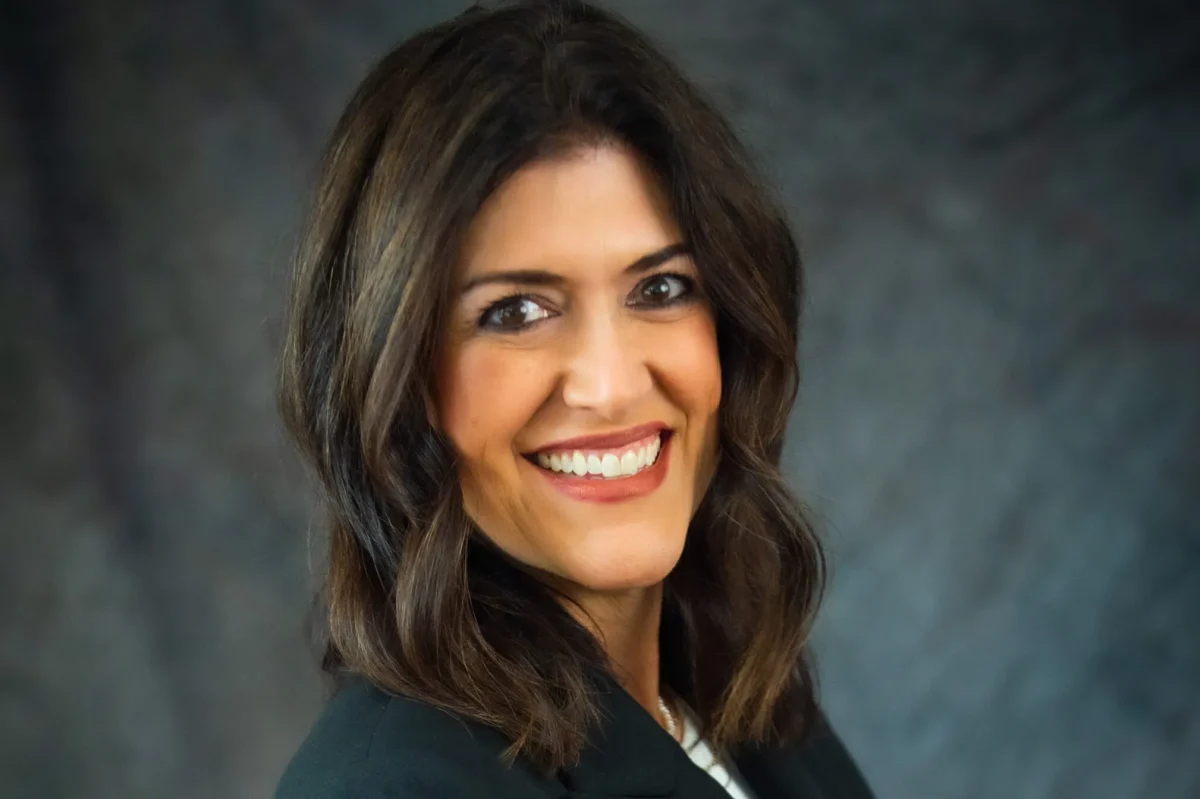




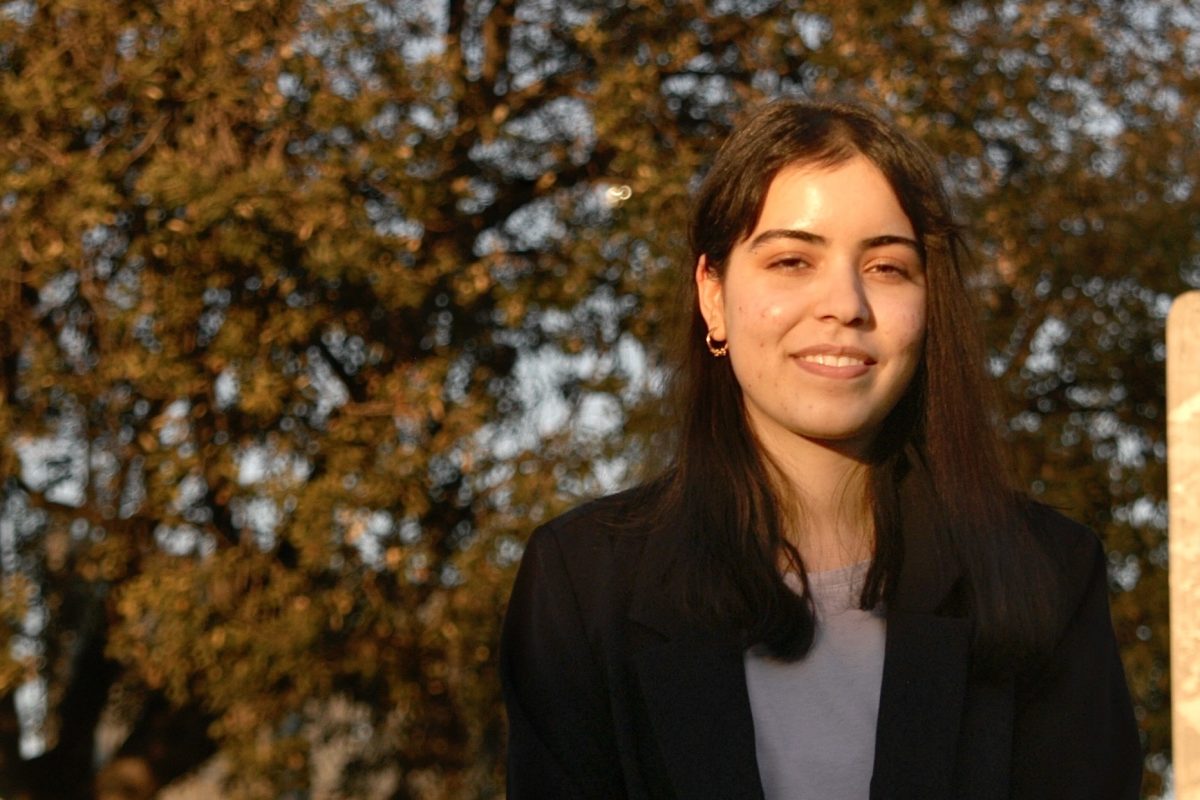
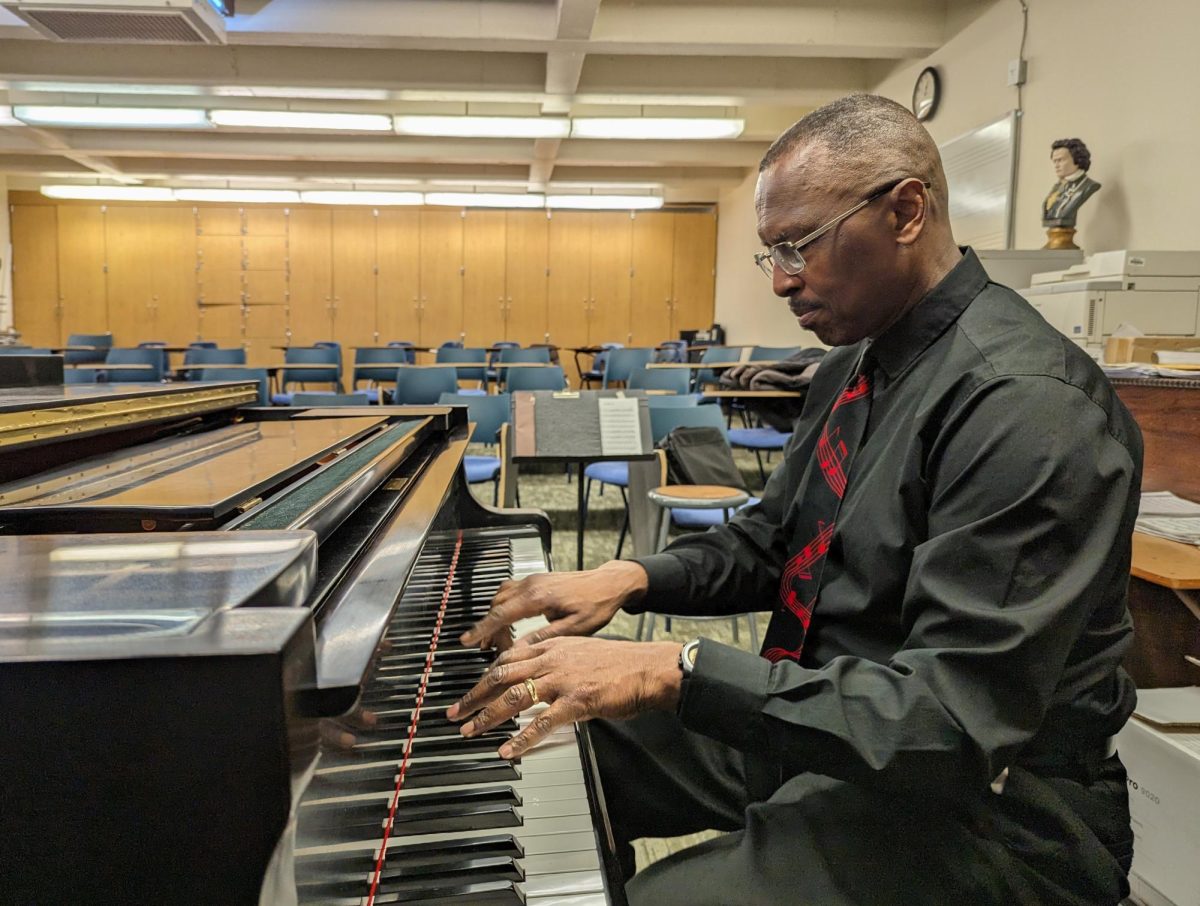
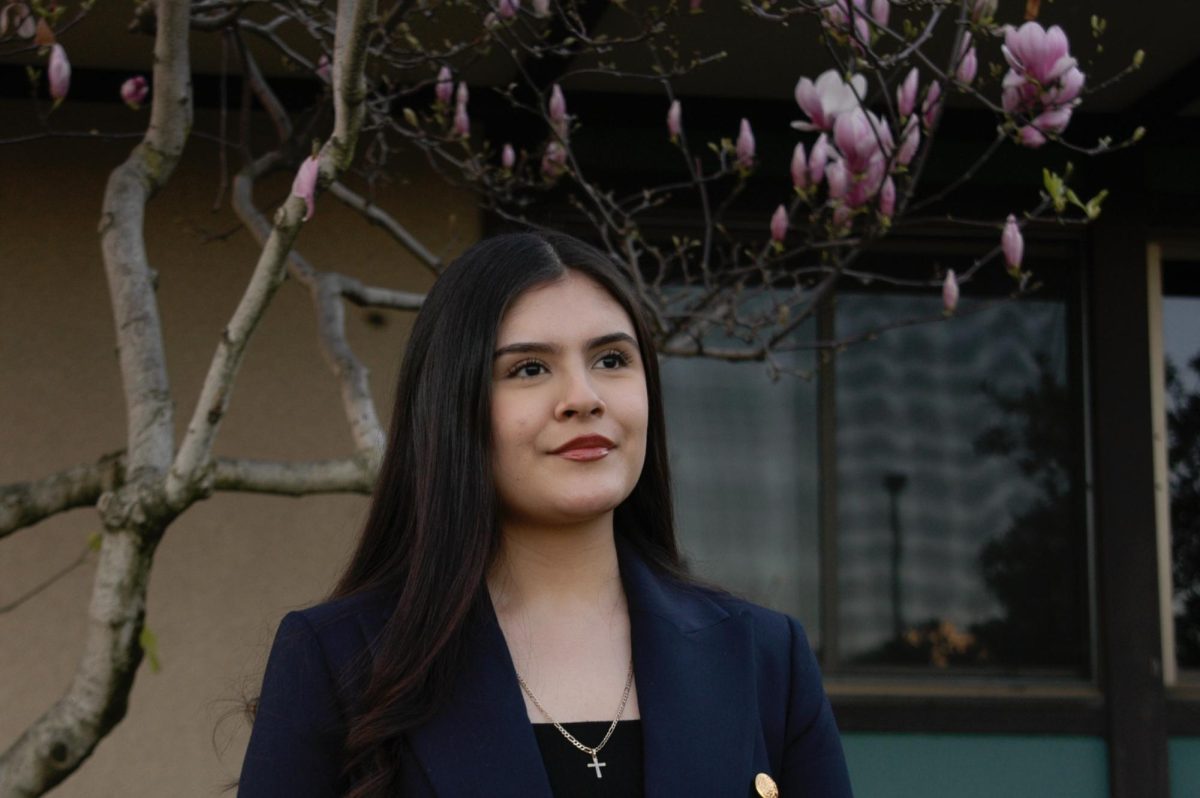



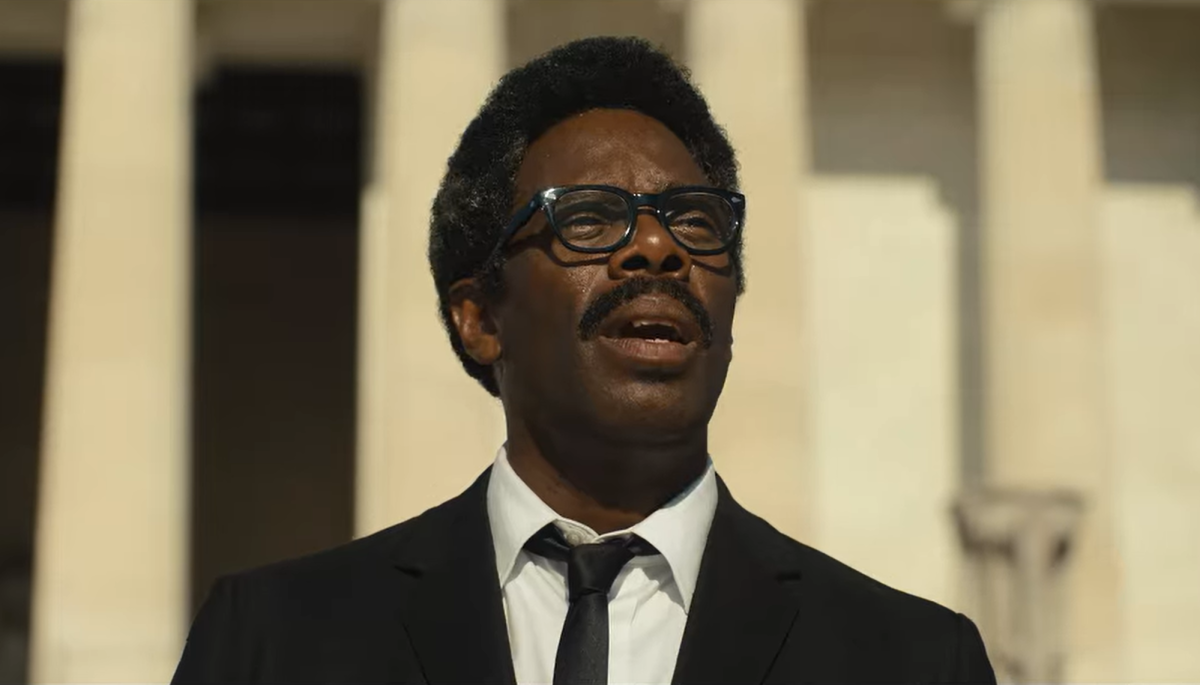
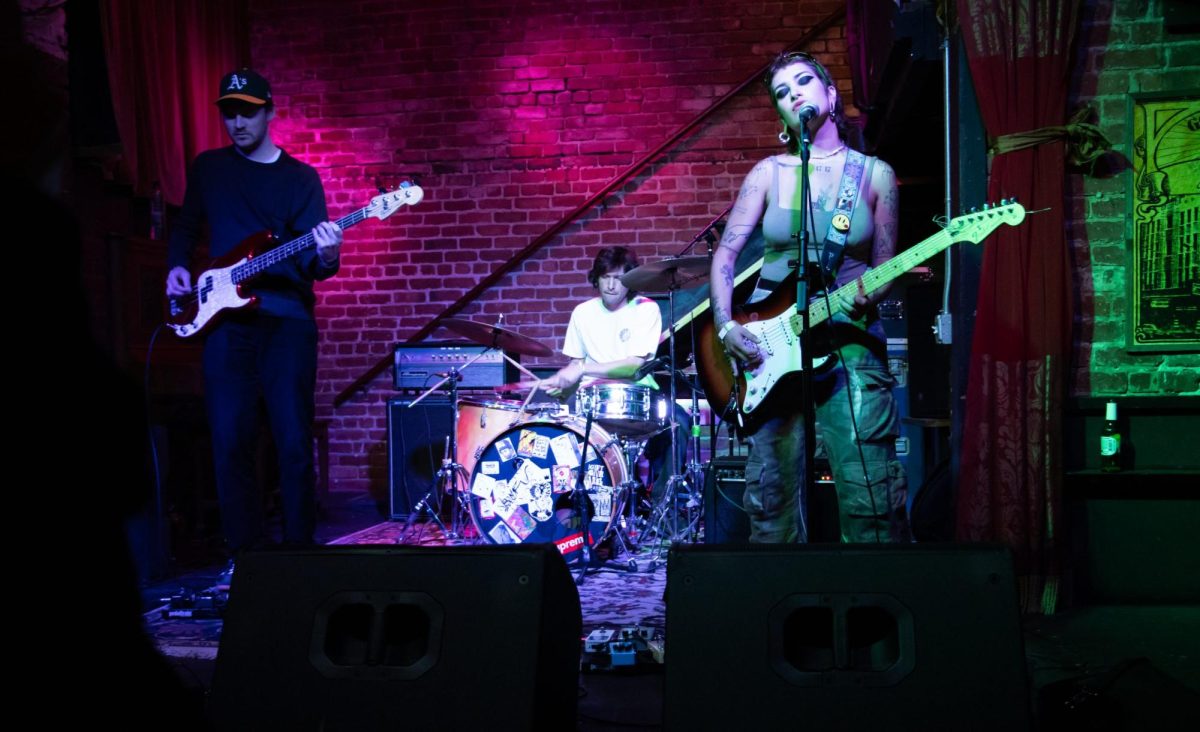
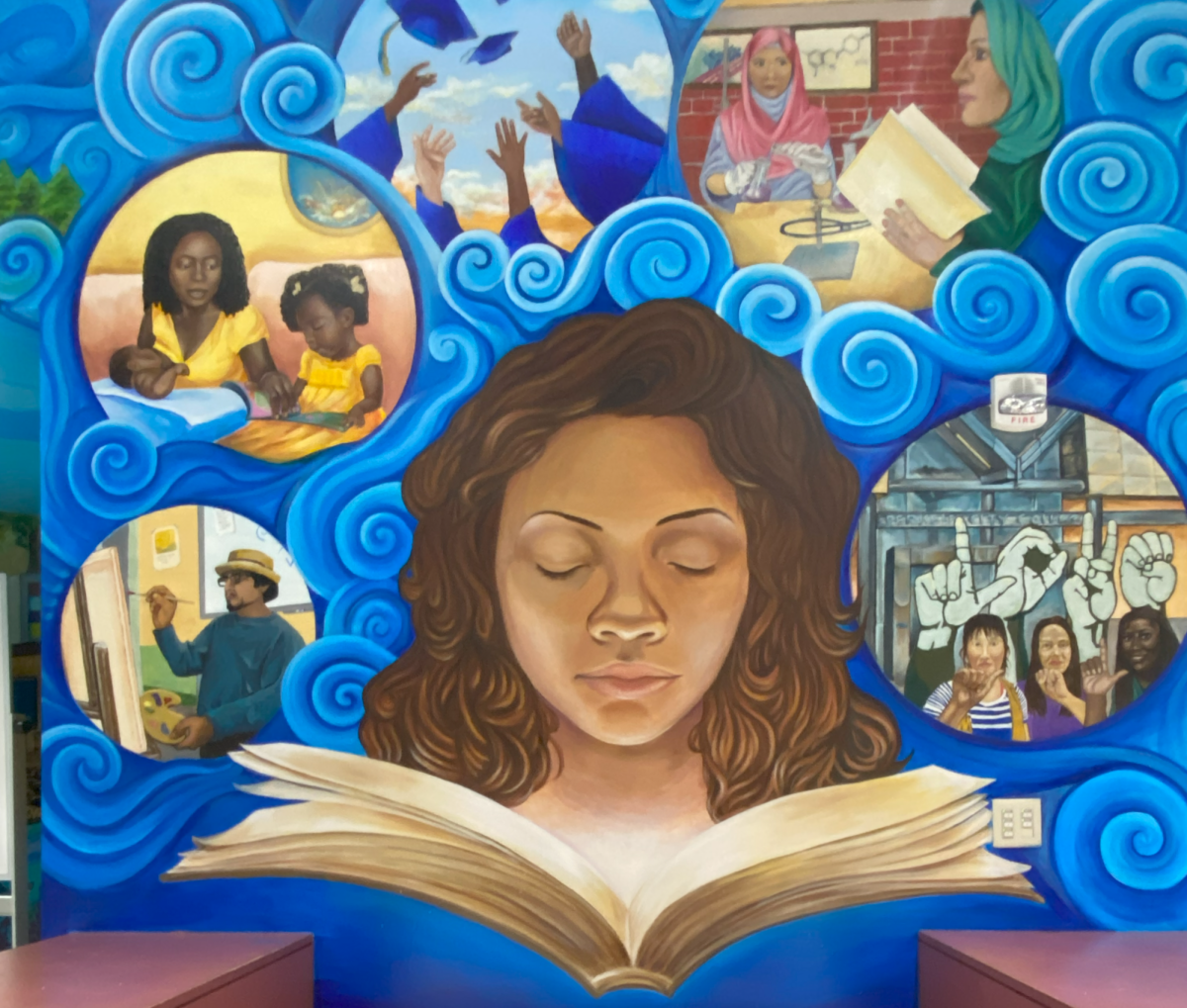



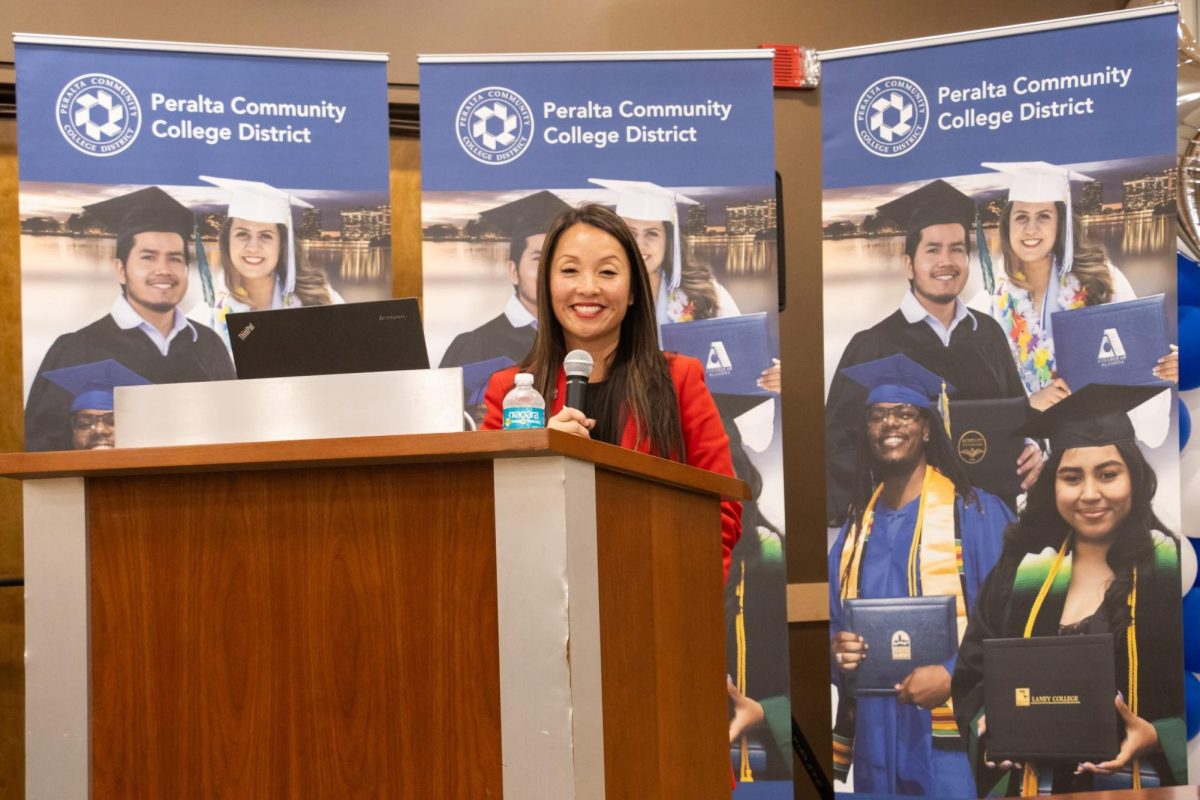


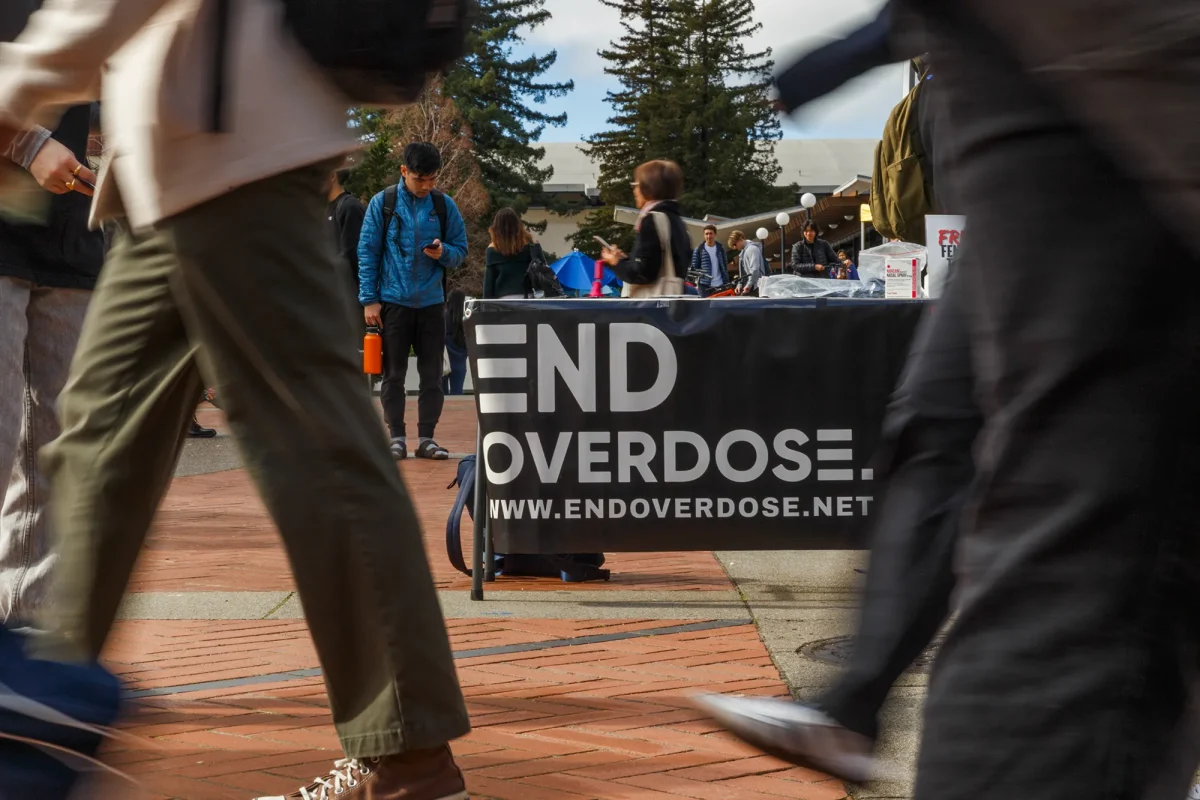
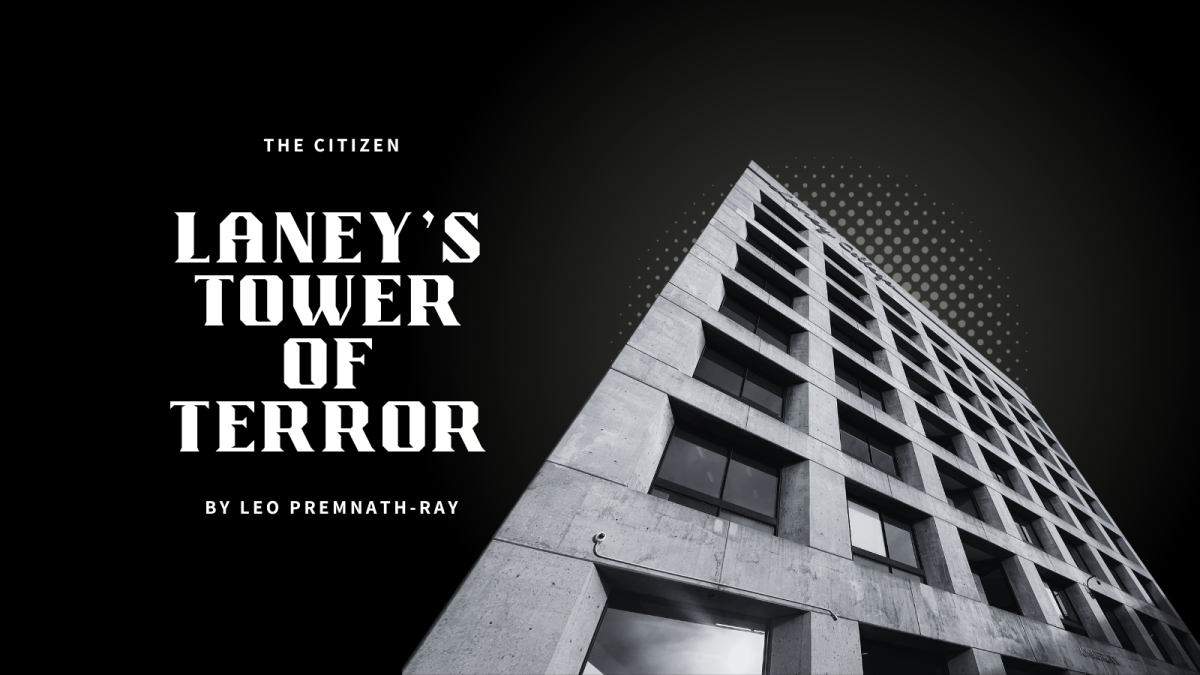




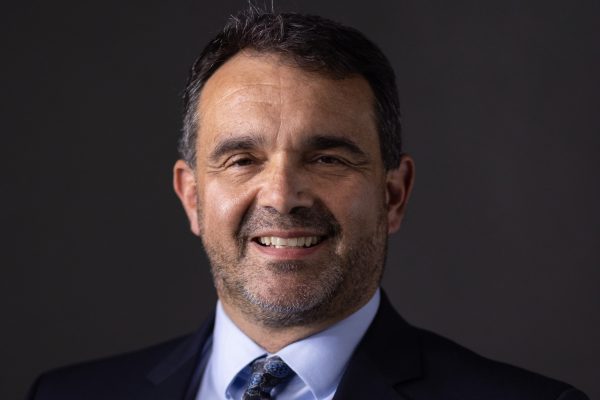
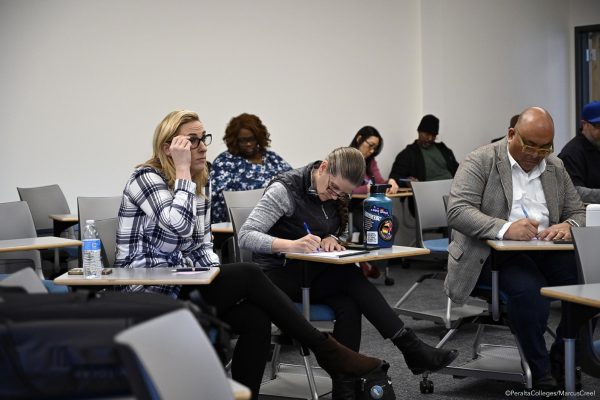
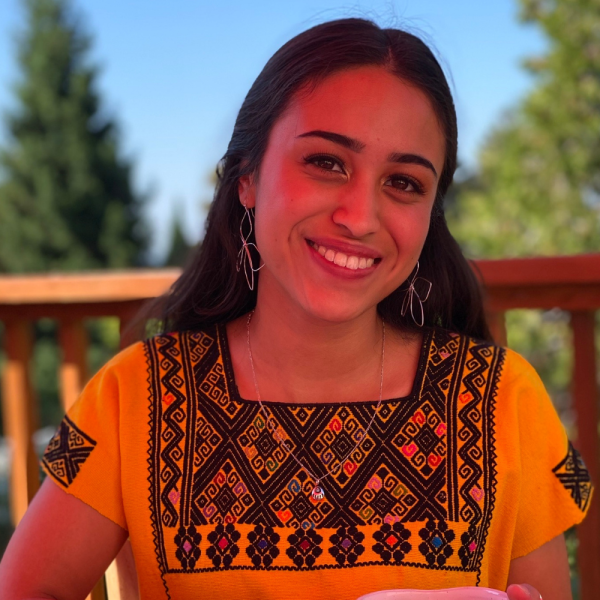
Lowell Bennett • Dec 15, 2020 at 3:25 am
Great article. Well researched and well written. This strategy for reimagining public safety is exactly what’s needed.